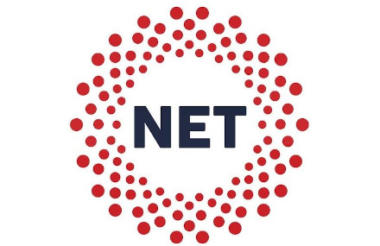Some 17.4% of National Emergencies Trust (NET) funds distributed so far have gone to “groups whose primary audience is BAME communities”, the organisation has said.
Yesterday NET published a report on the first 12 weeks of its emergency coronavirus appeal, giving details on funds raised and distributed so far.
The appeal launched on 18 March, and has now raised £82m in total. NET has so far distributed £51.2m via umbrella body UK Community Foundations, which represents 46 local foundations across the UK.
Some 6,708 charities and organisations have received grants, and the average grant amount was £4,162.
Initial £3.2m allocated to BAME communities
Earlier this month, NET asked UK Community Foundations members to identify the percentage of the NET grants it awarded “primarily for the benefit BAME communities”.
This could include grants “clearly targeted at and designed to benefit BAME communities”, and grants that “were not specifically designed for BAME people but [where] a large number will benefit”.
The research found that the percentage of funds going to BAME communities in the UK overall was 17.4%. According to government data, in 2018 13.8% of the UK population was from a minority background.
NET's data on fund distribution covers 95% of UK Community Foundations members, and does not include further details on how much went to specific ethnic groups within BAME communities.
BAME communities have been heavily impacted by the Covid-19 crisis, and according to a survey which was published at the end of April by the Ubele Initiative, some 87% of BAME-led micro and small organisations risk closure.
For this reason, campaign group #CharitySoWhite published an open letter calling for 20% of emergency funds to be ring-fenced for BAME-led organisations, which has now been signed by more than 180 individuals and organisations.
NET did not collate data on funding distributed specifically to BAME-led organisations. It said it has now ring-fenced an “initial” £3.2m to support to people from BAME communities, and that this will include BAME-led charities and groups.
Finally, NET data that looked solely at the “primary beneficiaries” of grants, defined as “groups that can be considered the main audiences for the grants”, found that programmes for people from BAME heritage received about £4m in funding from NET.
Catching up on diversity
John Herriman, CEO of the National Emergencies Trust, said that the organisation initially made mistakes on equity, mostly because the focus was on getting funds out of the door quickly. But it is now catching up, he said.
He said: “We were able to get our first funding out to those in urgent need within seven days of launching the appeal. We had an average four-to-seven-day turnaround for grants, and have had incredible donors who have been quick to respond to the need in communities.
“This pace in the early weeks was critical. It meant that food and essential supplies reached vulnerable, isolated people and those suddenly unable to pay for their accommodation had access to emergency shelter.
“But with such a focus on pace, and as a brand-new organisation, we’ve made mistakes too and have been rightly challenged. Our equity working group was set up mid-appeal with the best intentions but without fully thinking through how it would influence decisions.
“That work is happening now, and the refocused equity scrutiny group is proving invaluable, but we should have been earlier to get there. We’ve also learned that capturing data at scale and at speed is an enormous task.
“It’s fair to say we are learning at speed what we can do better, and we’re committed to driving improvements. Not just for this current appeal but to ensure NET is even better prepared for the next emergency.”
Focus on mental health
The report also contains other data on the kind of programmes that emergency NET funds have gone towards.
Data on the primary beneficiaries of grants found that people with mental wellbeing needs received the relative majority of grants – close to 2,500, receiving around £11m in funding.
Families came second (getting more than £7m), followed by children and young people and people experiencing financial hardship (both over £6m).
This data only looks at main audiences of grants, meaning that there are overlaps between groups.
When it comes to the type of programmes being funded, the majority of grants went towards temporary emergency programmes (more than £14m in funding), followed by food, medicines and other essentials (£13m) and wellbeing services (more than £12m).
NET said it is analysing the data to make sure the funds are fairly distributed.
Herriman said: “We are currently undertaking a detailed gap analysis, combining our own body of grants data with external insights into wider sector funding, government funding and emerging unmet needs. Our goal is to ensure that remaining funds are distributed as equitably as possible, and as part of that we will be announcing additional distribution partners.”
The analysis will be completed later this month, the report says.
£44m raised from corporates
Finally, NET also shared more information on the appeal’s fundraised total, showing that the appeal has seemingly been especially successful among corporates.
Out of a total of £82m, some £44m came from corporates, and another £20m from the government match-funding scheme for the Big Night In appeal.
Herriman said: “The support we’ve received from corporates and trusts for this first appeal has been incredible. While there has been some great commitment from the public at a very difficult time, the majority of our public giving has come through employee engagement and customer-facing campaigns run by corporates, alongside some very generous individuals and trusts.
“This has been invaluable because its helped to raise awareness and funds at speed, despite being a little-known charity, and enabled us to keep our own core costs extremely low. For future emergencies, we would expect to see more of a balance between the public and corporate giving.”











